During the COVID-19 pandemic, many of our partners stepped forward with rapid responses to address manufacturing challenges.
Advanced Materials & Manufacturing Technologies Office
June 19, 2020
Technological innovation in advanced manufacturing is helping our nation overcome the unprecedented challenges of the COVID-19 pandemic. The U.S. Department of Energy’s (DOE) National Laboratory and industry partners have heeded President Trump’s call to dramatically accelerate timelines to bolster the domestic manufacturing sector and redirect resources to areas of critical need.
Researchers at two advanced manufacturing facilities at DOE’s Oak Ridge National Laboratory (ORNL) are developing new ways to rapidly produce N95 filters, masks, face shields, test kit components, and more—all in support of the medical professionals on the front lines of the pandemic response.
These efforts are also aimed at arming the manufacturing industry with the information it needs to pivot and rapidly expand production for these essential materials. By helping manufacturers whose operations have been disrupted shift to producing critical supplies, they are also contributing to America’s economic recovery.
“These activities exemplify how America’s advanced manufacturing community can respond swiftly to emerging challenges with meaningful results that are adoptable by industry,” said Daniel R Simmons, Assistant Secretary for the Office of Energy Efficiency and Renewable Energy.
Developing New Methods for N95 Filter Production
For manufacturers joining the coronavirus response, the process of retooling equipment, conducting trials, and optimizing production for entirely new materials can be time consuming and costly.
Researchers at ORNL’s Carbon Fiber Technology Facility (CFTF) recognized the potential to recalibrate melt-blown machines used to produce textiles, filters, or carbon fiber to help address the shortage of highly protective N95 masks. This effort led to the development of a specific and reproducible set of parameters that companies can use to produce N95 filters quickly and with confidence that the resulting material will meet the required specifications.
Creating an N95 filter involves a range of technological hurdles: the mask must offer a very high level of protection while still allowing the wearer to breathe. N95 mask inventor Dr. Peter Tsai invented a method of producing two thicknesses of polypropylene fiber and then electrostatically charging the material. The resulting filter contains millions of charged microfibers uniquely equipped to trap fine particles.
N95 masks are traditionally produced on specialized manufacturing lines. Dr. Merlin Theodore, director of the CFTF, led her team along with Dr. Tsai to tackle real-time challenges associated with converting the facility’s melt-blown capability and incorporating the electrostatic charging equipment needed to make N95 filters.
As of mid-April, the team had achieved their target operational parameters and had produced material that met all N95 requirements. ORNL is now working with companies, such as engine, filtration, and power-generation manufacturer Cummins, to convert their commercial melt-blowing lines to potentially produce millions of pounds of N95 material based on research performed at the CFTF.
The team is also open-sourcing production parameters to allow any manufacturer with the appropriate machinery to join in producing N95 filters. By developing the essential process science and working with industry, researchers are enabling a rapid increase in N95 material production within the manufacturing community.
Next-Generation Manufacturing in the COVID-19 Fight
In addition to helping manufacturers repurpose existing equipment, teams are 3D printing molds and toolsets to provide industry with the capacity to scale production of a range of personal protective equipment and test-kit materials.
The Manufacturing Demonstration Facility (MDF) at ORNL and the DOE-funded Institute for Advanced Composites Manufacturing Innovation (IACMI) are using their knowledge, tools, expertise, and connections with the supply chain to develop flexible manufacturing technologies that can be ramped up in a cost-effective way.
3D printing, also known as additive manufacturing, builds components layer by layer directly from a digital design. This approach allows for the rapid fabrication of complex, high-performance components that would otherwise take much longer to design and manufacture. Rapid production of 3D printed tooling for injection molding of critical components enables industrial partners to exponentially scale their rate of production by taking advantage of idle manufacturing capacity.
Researchers are working on a range of personal protective equipment and test-kit materials, including:
- Metal Toolsets for New Mask Designs
The MDF is using a hybrid process of metal additive manufacturing and machining to make injection-mold tools that can be used by U.S. industry for mass production of a newly designed mask suited to the challenges presented by COVID-19. While N95 masks typically are made with one disposable piece of filter rated for eight hours of wear, this reusable, sanitizable mask lowers the quantity of material needed by holding N95 filter between an inner silicone seal and an outer rigid structure.
MDF researchers worked with Uday Vaidya, who holds the ORNL/University of Tennessee Governor’s Chair in Advanced Composites Manufacturing and serves as chief technology officer for IACMI, to design the prototype mold. Using this approach, engineers at ORNL are designing and producing metal molds in days that would take months to procure with traditional manufacturing methods. The team has produced five sets of tools to allow industry to make up to 300,000 reusable masks per week. Global medical supply manufacturer is looking to produce and deploy the mask.
- Molds for Rapid Production of Face Shields
Facing a need to dramatically increase production of face shields for the medical community, DeRoyal Industries again worked with MDF researchers to design and print a mold for the frame that holds the shield in place on the wearer’s head. This tool has allowed DeRoyal to make 30,000 shields per day for the U.S. medical community. By automating the process, the company expects to increase production even further.
- Tooling for Mass Collection Tube Production
To support test kit production, the MDF is using its metal additive manufacturing capabilities to rapidly produce injection-molding tooling for test tubes. By sharing these designs with industry, experts are laying the foundation for industrial partners to manufacture collection tubes on the order of millions per week. Collection tube manufacturing efforts are conducted in coordination with the U.S. Department of Health and Human Services.
Learn more about these efforts and more by watching the Laboratory’s YouTube video, “ORNL in the Fight against COVID-19.”
Looking Forward
Researchers will continue to make their results available to industry, enabling mass-production of these technologies commensurate with the demands of the healthcare community and the American public. Importantly, these efforts also support America’s manufacturing competitiveness by offering a roadmap for companies facing idle capacity due to the pandemic.
“This community’s agile response to COVID-19 is just one example of the importance of a robust and cutting-edge domestic manufacturing sector,” said Assistant Secretary Simmons. “Time and time again we see how innovative industrial technologies and processes have the power to create and sustain American leadership in advanced manufacturing.”
ORNL’s efforts are funded in part by the DOE Office of Science through the National Virtual Biotechnology Laboratory, a consortium of DOE National Laboratories focused on response to COVID-19, with funding provided by the Coronavirus CARES Act. The CFTF, MDF, and IACMI are managed by the Office of Energy Efficiency and Renewable Energy’s Advanced Manufacturing Office. In partnership with the U.S. Department of Defense (DOD) Industrial Base Analysis and Sustainment Program from the Office of Industrial Policy and the U.S. Department of Health and Human Services, ORNL has mobilized advanced manufacturing researchers at the MDF to develop tooling such as molds that will enable the production of face masks, shields and test collection tubes in quantities estimated from hundreds of thousands to millions. These efforts are at the heart of a new collaboration between DOE and DOD called the America’s Cutting Edge program, a national initiative for machine tools technology development and advancement.
DOE’s Office of Science is leading coordination efforts on the Department’s response to COVID-19. Visit the DOE COVID-19 Hub to learn more about the Department’s efforts to coordinate closely with the White House and interagency partners in a unified response to the coronavirus.
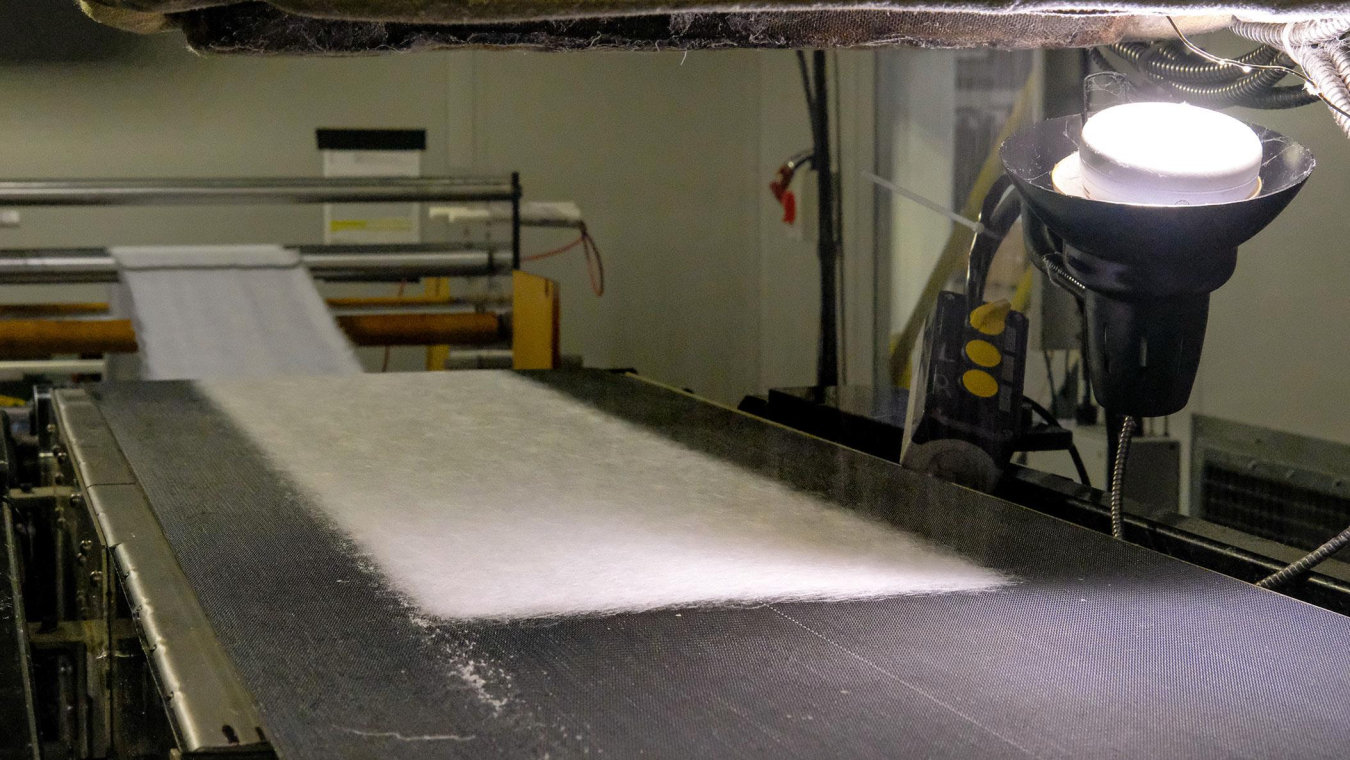
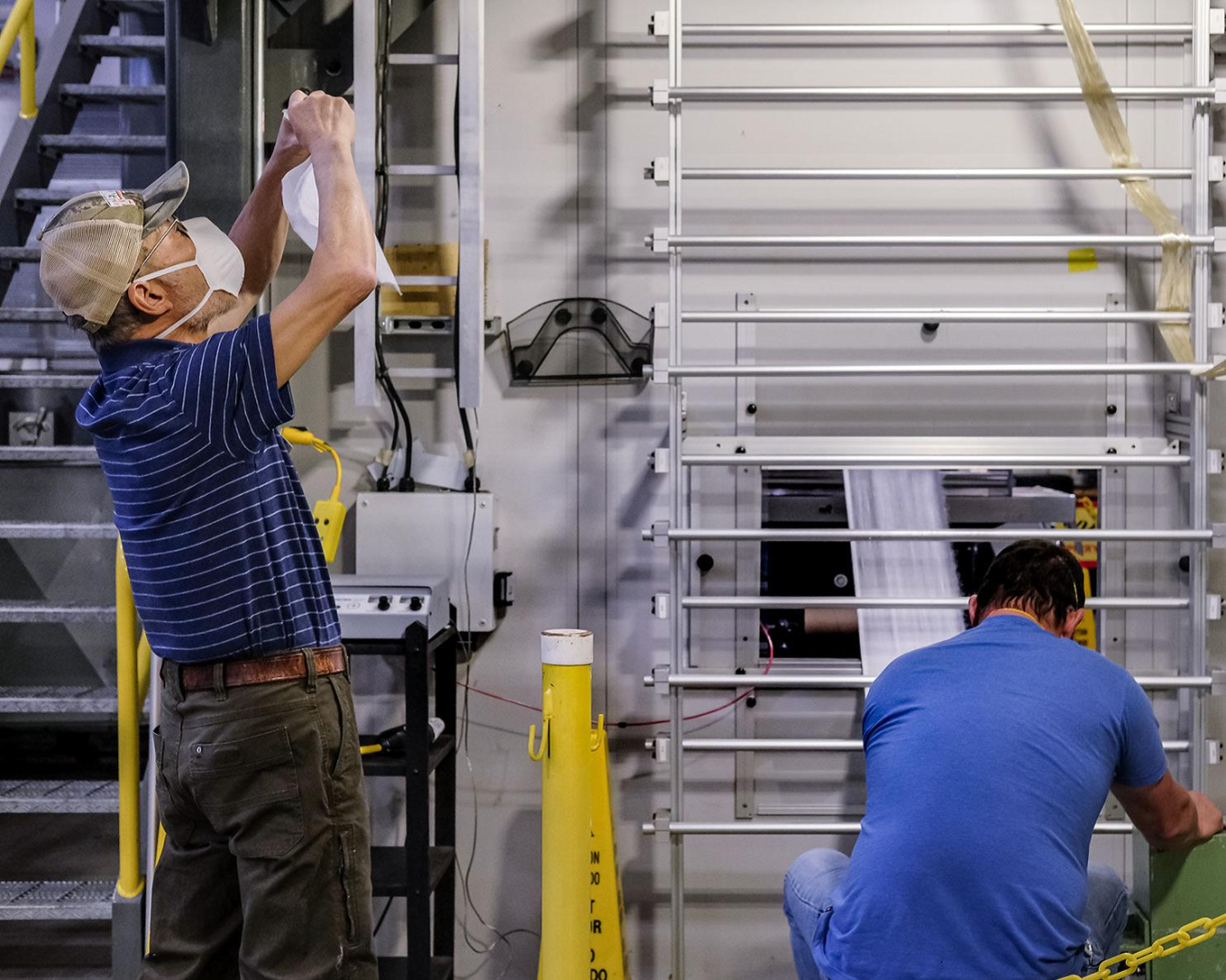
ORNL’s Carbon Fiber Technology Facility’s production line is working to manufacture N95 material. Photo credit: ORNL
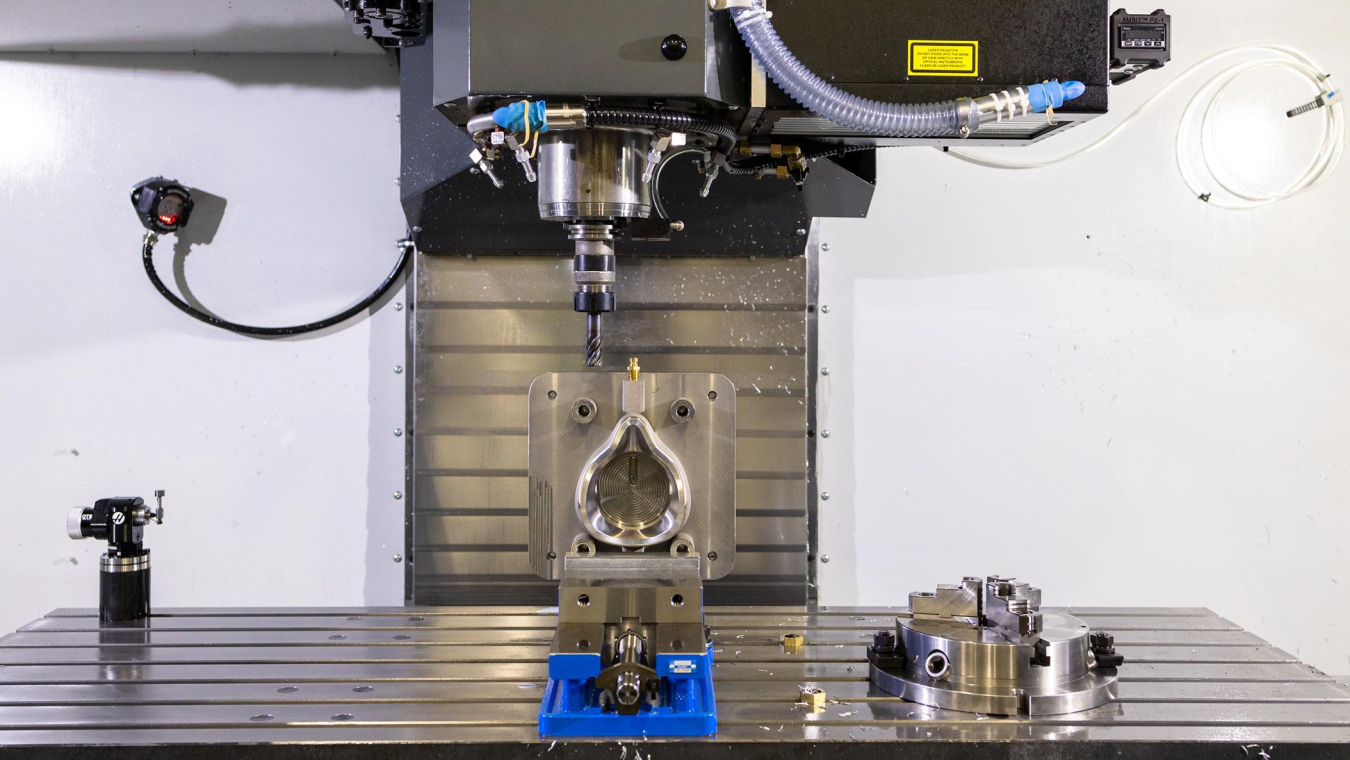
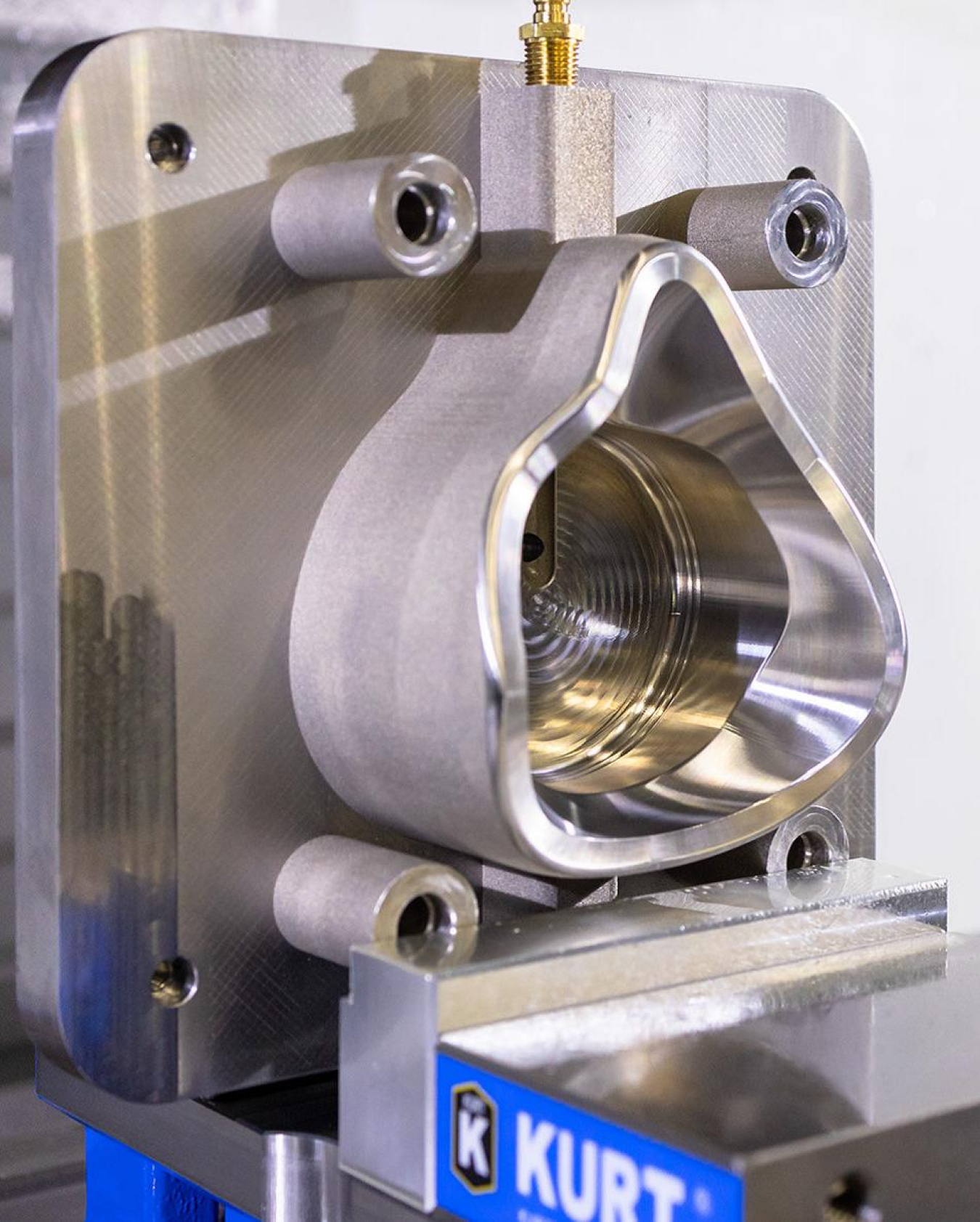
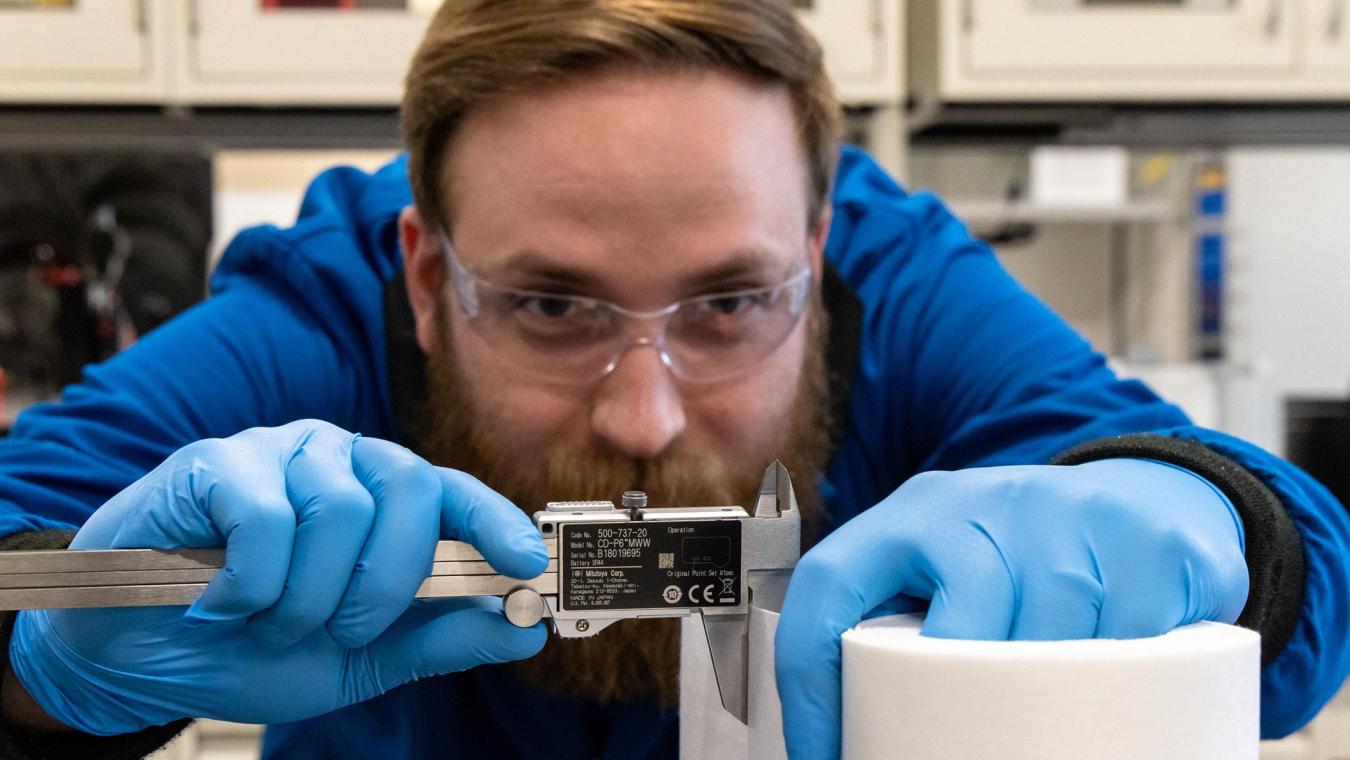

ORNL is designing reusable face masks using the lab’s advanced manufacturing facilities. Photo credit: ORNL

